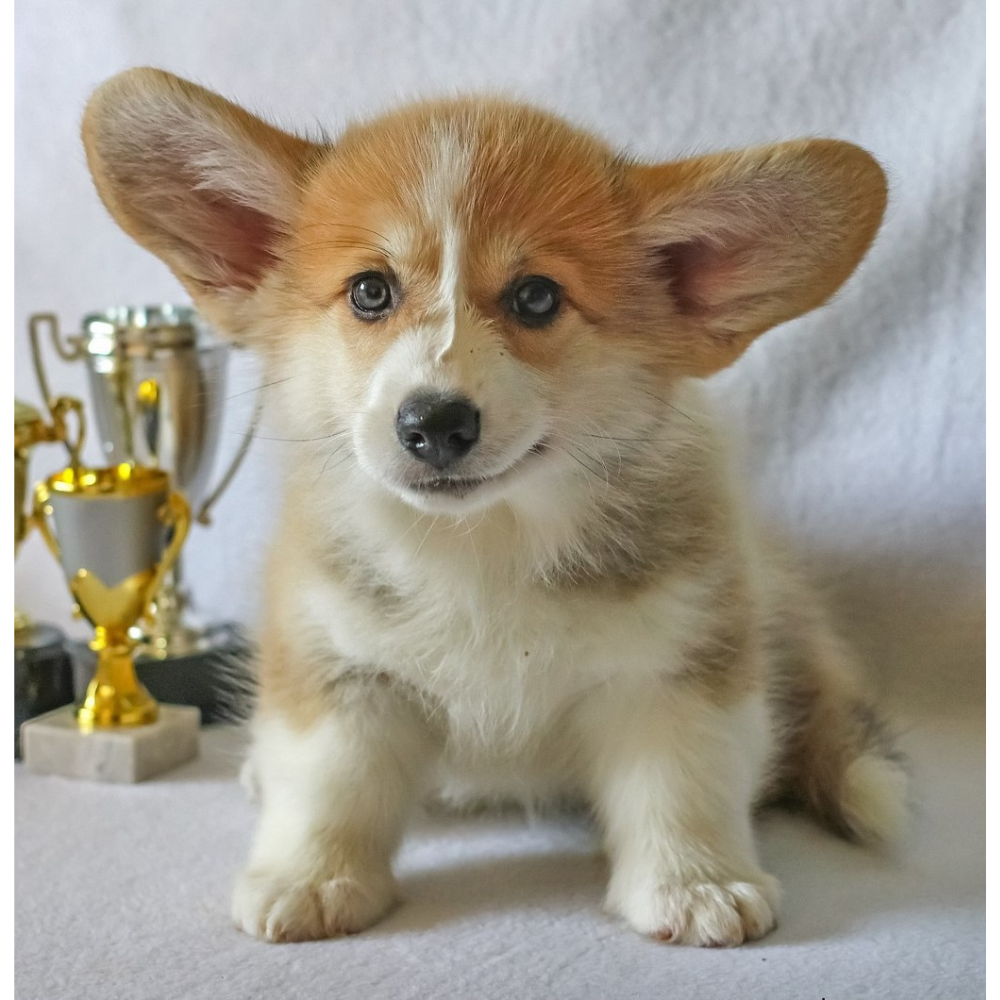Best Dog Food for Corgi Puppy: A Comprehensive Guide

Key Takeaways:
- Nutritional Needs: Understanding the specific nutritional needs of corgi puppies is crucial for their growth and health.
- Food Types: Exploring the benefits of dry dog food, raw diets, and specially formulated puppy foods for corgis.
- Health Considerations: Addressing common health issues in corgis through diet, including joint health and food sensitivities.
Corgis, with their distinctive appearance and exuberant personality, have captured the hearts of pet parents around the world. If you're the proud owner of a corgi puppy, you know that these active little dogs have specific dietary needs. This guide will delve into the best dog food options for corgi puppies, ensuring your furry friend grows up healthy and happy.
Understanding Corgi Puppies' Nutritional Needs
Corgi puppies, whether they are Pembroke Welsh Corgis or Cardigan Welsh Corgis, require a diet that supports their rapid growth and active lifestyle. These puppies need a balanced diet rich in proteins, carbohydrates, fats, vitamins, and minerals. Protein is essential for muscle development, while fats like fish oil provide the fatty acids necessary for a healthy coat and skin.
Carbohydrates, including sources like brown rice, provide the energy corgi puppies need for their high activity levels. It's also important to choose a diet that supports joint health, as corgis can be prone to issues like hip dysplasia due to their long bodies and short legs.
Choosing the Right Dog Food Type
When selecting the best dog food for a corgi puppy, you have several options. Dry dog food is a popular choice among corgi owners due to its convenience and ability to promote dental health. Look for dry food that is specifically formulated for small breeds to ensure that the kibble size is appropriate for your corgi's small mouth.
Alternatively, a raw diet can provide your corgi puppy with natural sources of nutrients, though it requires careful management to avoid nutritional imbalances and health risks. Always consult with a veterinarian before starting your puppy on a raw diet.
Special Formulations for Puppy Growth
Puppy-specific formulas are designed to support the rapid growth phase of corgi puppies. These foods typically have higher levels of protein and fat to meet the developmental needs of growing dogs. Additionally, they often contain supplements like DHA for brain development and calcium for bone growth.
It's crucial to transition to these formulas gradually to avoid digestive issues. Start by mixing the new food with your puppy's current food, gradually increasing the proportion over several days.
Addressing Common Health Concerns Through Diet
Corgis are prone to certain health issues that can be managed or mitigated through proper diet. For instance, to support joint health and prevent conditions like hip dysplasia, look for foods that include joint-supporting nutrients such as glucosamine and chondroitin.
Food sensitivities can also be a concern for corgi puppies. If you notice signs of allergies or sensitivities, such as itching or gastrointestinal upset, consult your vet. They may recommend a limited ingredient diet or a hypoallergenic food to identify and avoid triggers.
The Role of Fatty Acids in a Corgi's Diet
Fatty acids, particularly omega-3 and omega-6, are vital for maintaining a healthy skin and coat. Fish oil is a great source of these fatty acids and can be found in many high-quality dog foods. Ensuring your corgi puppy's diet includes adequate fatty acids can help prevent dry skin and ensure their coat remains shiny and healthy.
Importance of a Balanced Diet
A balanced diet is crucial for your corgi puppy's overall health. This includes a proper mix of proteins, carbohydrates, fats, vitamins, and minerals. Each element plays a role in maintaining different aspects of your puppy's health, from their coat and skin to their energy levels and immune system.
Transitioning to Adult Dog Food
As your corgi puppy approaches adulthood, you'll need to transition them to adult dog food. This change should be gradual, over a period of about a week, to prevent digestive upset. Adult dog food has different nutritional content to better suit the less intense energy needs of adult dogs.
Summary
Choosing the right food for your corgi puppy involves understanding their unique nutritional needs and addressing any health concerns through diet. Whether you opt for dry food, a raw diet, or specially formulated puppy food, ensure it is rich in proteins, fats, and other nutrients essential for your puppy's growth and overall health. Regular consultations with your vet can also help tailor your puppy's diet to their specific needs, ensuring they grow up to be healthy and energetic corgis.
FAQ
Q: How often should I feed my corgi puppy? A: Corgi puppies should be fed three to four times a day to support their fast metabolism and energy needs. As they grow, you can gradually reduce feeding times to twice a day.
Q: Can I give my corgi puppy adult dog food? A: It's not recommended to feed a corgi puppy adult dog food as it doesn't have the necessary nutrients to support their growth and development. Stick to puppy-specific formulas until they are about 12 months old.
Q: How do I know if my corgi puppy has food sensitivities? A: Signs of food sensitivities in puppies include itching, red skin, ear infections, and gastrointestinal issues like diarrhea or vomiting. If you notice any of these symptoms, consult your veterinarian for advice on dietary changes or treatments.